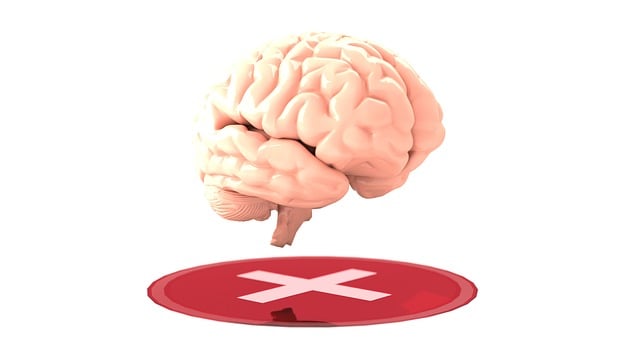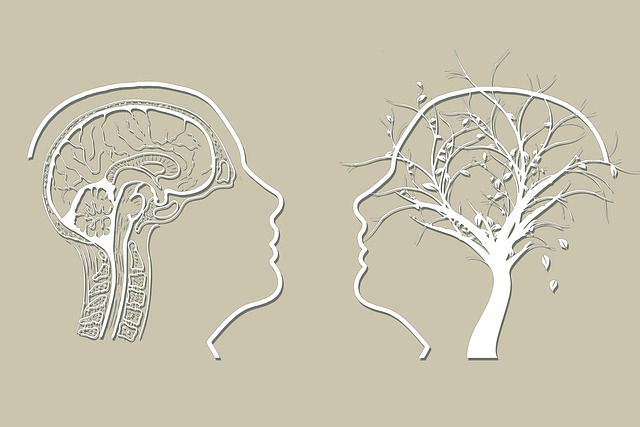Coping skills are essential for personal growth and well-being during life transitions, particularly in Littleton Divorce Therapy settings. This specialized therapy offers evidence-based practices integrating mindfulness, emotional regulation, and communication skills to help clients manage stress, self-compassion, and adaptation. The program includes cultural competency training, strategic community outreach, and empathy-building techniques for enhanced emotional intelligence and deeper connections. Through these tools, individuals gain resilience and navigate challenging life changes effectively, improving overall mental well-being.
Coping skills are essential tools for navigating life’s challenges and stress. In this article, we explore the significance of these skills in personal growth, focusing on their role in overcoming significant transitions like divorce. We delve into how Littleton Divorce Therapy employs effective coping mechanisms, offering strategies to build a robust skillset. From enhancing well-being during life changes to fostering resilience, understanding and cultivating these skills can profoundly impact one’s overall mental health and happiness.
- Understanding Coping Skills and Their Significance in Personal Growth
- The Role of Littleton Divorce Therapy in Teaching Effective Coping Mechanisms
- Strategies for Building a Robust Coping Skillset
- Real-World Applications: How Coping Skills Enhance Well-being During Life Transitions
Understanding Coping Skills and Their Significance in Personal Growth

Coping skills are essential tools for personal growth and well-being. They refer to the strategies individuals use to navigate and manage life’s challenges, stress, and difficult emotions. Developing effective coping mechanisms is particularly crucial during pivotal life transitions, such as those experienced in Littleton Divorce Therapy settings. This process involves recognizing and understanding one’s emotional state, a practice enhanced by self-awareness exercises, which enable individuals to identify and label their feelings accurately.
By fostering emotional regulation and promoting emotional well-being through various techniques, individuals can build resilience. These skills are game-changers in mitigating the impact of life’s stressors and challenges. In the context of therapy, learning and implementing these strategies can significantly contribute to personal growth, helping individuals make sense of their emotions and responding to them in healthy, constructive ways.
The Role of Littleton Divorce Therapy in Teaching Effective Coping Mechanisms

Littleton Divorce Therapy offers a unique and specialized approach to coping skills development, particularly in navigating the challenges that arise during divorce or separation. This form of therapy recognizes that individuals often struggle with intense emotions, stress, and adjustment issues when facing significant life transitions. By providing a safe and supportive environment, therapists help clients learn effective coping mechanisms tailored to their specific needs.
Through evidence-based practices, Littleton Divorce Therapy integrates various techniques such as mindfulness, emotional regulation strategies, and communication skills into its framework. The therapy sessions are designed to empower individuals with tools to manage stress, cultivate compassion towards themselves and others, and adapt to new life circumstances. Additionally, the program incorporates cultural competency training for healthcare providers, ensuring a deeper understanding of diverse client backgrounds and needs, including those from different ethnic or socioeconomic groups. This comprehensive approach not only facilitates individual healing but also equips clients with the resources to thrive post-divorce, fostering resilience and personal growth within the context of significant life change.
Strategies for Building a Robust Coping Skillset

Developing robust coping skills is a crucial aspect of maintaining mental well-being, especially during challenging life transitions such as divorce. Littleton Divorce Therapy offers valuable insights and strategies to build a strong coping skillset. One effective approach is integrating empathy building strategies into daily routines. By practicing active listening and understanding others’ perspectives, individuals can enhance their emotional intelligence, fostering deeper connections and more supportive relationships.
Moreover, community outreach program implementation plays a significant role in coping skill development. Engaging with support groups or local initiatives allows individuals to connect with like-minded people, share experiences, and gain different viewpoints. This sense of belonging and camaraderie can significantly improve mood management, providing valuable tools for navigating life’s ups and downs.
Real-World Applications: How Coping Skills Enhance Well-being During Life Transitions

In the context of life transitions, such as divorce or major career changes, coping skills development through therapy plays a pivotal role in enhancing well-being. Littleton Divorce Therapy, for instance, offers specialized programs that equip individuals with effective strategies to navigate challenging emotions and stressful situations. By participating in these therapeutic sessions, clients learn to manage their stress levels using evidence-based techniques, fostering resilience and emotional agility.
Real-world applications of coping skills extend beyond the therapy room. Participants often find themselves better equipped to handle crises, whether personal or professional, thanks to the crisis intervention guidance provided. Additionally, empathy building strategies, a key component in many stress management workshops organized by like-minded organizations, contribute to improved interpersonal relationships and overall mental health. These skills are invaluable during life transitions, helping individuals maintain balance and find clarity amidst change.
Coping skills development is an essential aspect of personal growth and well-being, especially during challenging life transitions. As discussed, Littleton Divorce Therapy offers valuable insights into teaching effective coping mechanisms, helping individuals navigate stressful situations with resilience. By integrating strategies from this therapy and adopting a robust coping skillset, folks can enhance their ability to manage stress, promote mental health, and foster a sense of equilibrium in today’s bustling world.














